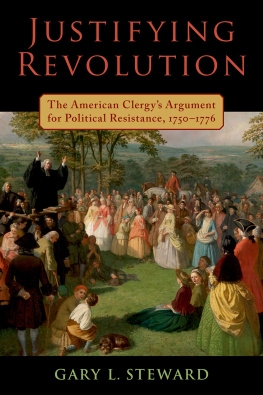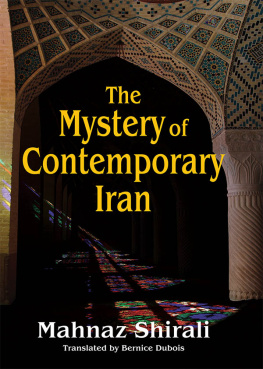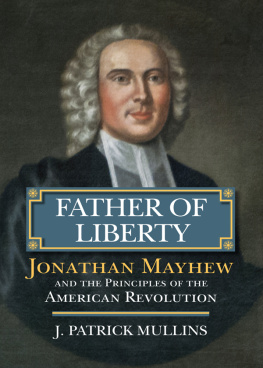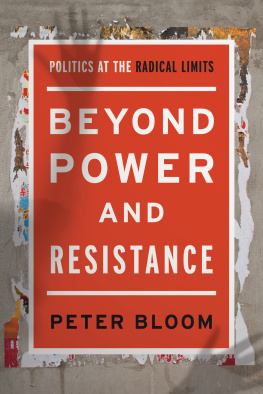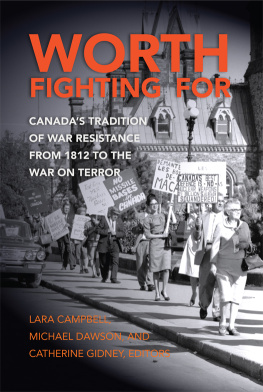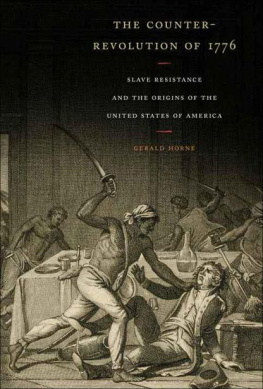Justifying Revolution

Oxford University Press is a department of the University of Oxford. It furthers the Universitys objective of excellence in research, scholarship, and education by publishing worldwide. Oxford is a registered trade mark of Oxford University Press in the UK and certain other countries.
Published in the United States of America by Oxford University Press
198 Madison Avenue, New York, NY 10016, United States of America.
Oxford University Press 2021
All rights reserved. No part of this publication may be reproduced, stored in a retrieval system, or transmitted, in any form or by any means, without the prior permission in writing of Oxford University Press, or as expressly permitted by law, by license, or under terms agreed with the appropriate reproduction rights organization. Inquiries concerning reproduction outside the scope of the above should be sent to the Rights Department, Oxford University Press, at the address above.
You must not circulate this work in any other form and you must impose this same condition on any acquirer.
Library of Congress Cataloging-in-Publication Data
Names: Steward, Gary L., author.
Title: Justifying revolution : the American clergys argument for political
resistance, 17501776 / by Gary L. Steward.
Description: New York, NY, United States of America : Oxford University Press, [2021] |
Includes bibliographical references and index.
Identifiers: LCCN 2021003889 (print) | LCCN 2021003890 (ebook) |
ISBN 9780197565353 (hardback) | ISBN 9780197565377 (epub)
Subjects: LCSH: United StatesChurch history18th century. |
Government, Resistance toReligious aspectsChristianity. |
Government, Resistance toUnited StatesHistory. | United StatesHistory
Revolution, 17751783Religious aspectsChristianity.
Classification: LCC BR520.S834 2021 (print) | LCC BR520 (ebook) |
DDC 230.09/033dc23
LC record available at https://lccn.loc.gov/2021003889
LC ebook record available at https://lccn.loc.gov/2021003890
DOI: 10.1093/oso/9780197565353.001.0001
Contents
I am grateful for the help and support that many have given to me in the production of this book. My doctoral supervisor, Greg Wills, helped me conceive the argument and provided lots of wonderful advice and counsel along the way. His friendship is much appreciated. Michael Haykin, Shawn Wright, Steve Wellum, Glenn Moots, Greg Forster, and John Wind also provided invaluable input in the early days of this project. Mark Hall has been especially helpful and supportive in providing suggestions and advice. Most recently, Ive been helped by friends and colleagues at Colorado Christian University, who have supported and encouraged me and my writing in a variety of ways, including Donald Sweeting, Ryan Hartwig, Steve Shumaker, Michael Plato, and Christian Finnigan. Oliver Schulz and the wonderful staff of the Clifton Fowler Library on the campus of Colorado Christian University helped provide access to important materials, even in the midst of quarantines and closures. Joshua Cook and Kayci Kruhmin helped with proofreading and caught many typographical errors.
I am especially thankful for my parents, Orville and Bonnie Steward, who made this book possible through their generous support, encouragement, and kindness. My wife, Amy, and our three children, Anna, Katie, and Joshua, have continued to be a source of joy and encouragement and have sacrificed greatly so that I could bring this work into print. For their love, grace, and joy, I am incredibly grateful.
This book is written under the conviction that the American clergy who supported the American Revolution have been misunderstood. Modern historians have wondered what to make of the American clergys arguments in this period for political resistance to the British. The majority of historians today, it seems, interpret the clergys support of the American Revolution as an accommodation of Christian teaching to various forms of secular thought. They must have ignored the clear teaching of the Bible and closed their ears to the authority of scripture to justify disobedience and armed warfare against the established political authorities. After all, doesnt scripture condemn political resistance?
Many historians have argued that the Revolutionary-era clergy developed their resistance doctrine on the basis of beliefs and philosophies that were sharp deviations from their inherited theological tradition. They synthesized Christian and secular notions together to create a distinct form of American religious thought. The clergy must have been co-opted, they argue, by radical political thought, anti-monarchicalism, republicanism, or Enlightenment secularism of some variety. While such accommodations may have been made by some Americans in colonial society, it is my view that these historians are wrong to ascribe such philosophical shifts to the patriot clergy in general. This is not the best explanation for understanding the origin of their doctrine of political resistance. To properly understand the clergys political ethics, one must reconstruct the historical and intellectual context that they lived in, starting with the context of their own theological tradition. Interpreters of the clergy must carefully note how they themselves understood their own views. A sympathetic reading of the clergys arguments can help us put ourselves in their shoes and try to understand their position as they themselves would have understood it.
The American clergy played an important role in shaping the public mind and provoking the response to the British that became the American Revolution.active resistance to civil authorities was sometimes justified. They viewed it, in fact, as at times a moral duty.
This work discusses the arguments used by the American patriot clergy to justify and promote political resistance to the British in the long build-up toward American independence. It attempts to recreate the theological and intellectual context of their views, so that the reader might understand the clergy on their own terms. Instead of selecting a small handful of leading figures, a large number of clergymen have been allowed to speak. Hopefully, one can hear these religious leaders speak for themselves and get a glimpse into how they thought by the number of quotations provided. The overall argument of this book is that the patriot clergy justified political resistance in continuity with the long-standing tradition of Protestant resistance activities and arguments asserted by their theological predecessors on both sides of the Atlantic. Rather than deviating from their inherited modes of thought on this matter, the clergy who supported resistance did so in ways that were consistent with their own theological tradition.
Debate over how to understand the American Revolution is nothing new. Different schools of interpretation were present from the time of the events themselves, and these perspectives have shaped how historians have told the story of this period. William Gordons History of the Rise, Progress, and Establishment of the Independence of the United States of America (1788), David Ramseys History of the American Revolution (1789), and Mercy Otis Warrens History of the Rise, Progress, and Termination of the American Revolution (1805) all presented the Revolution in a favorable light. These works started a Whiggish tradition of interpretation that was picked up by George Bancroft and John Fiske in the later part of the nineteenth century. Some of these historians are discussed in passing in this work.

